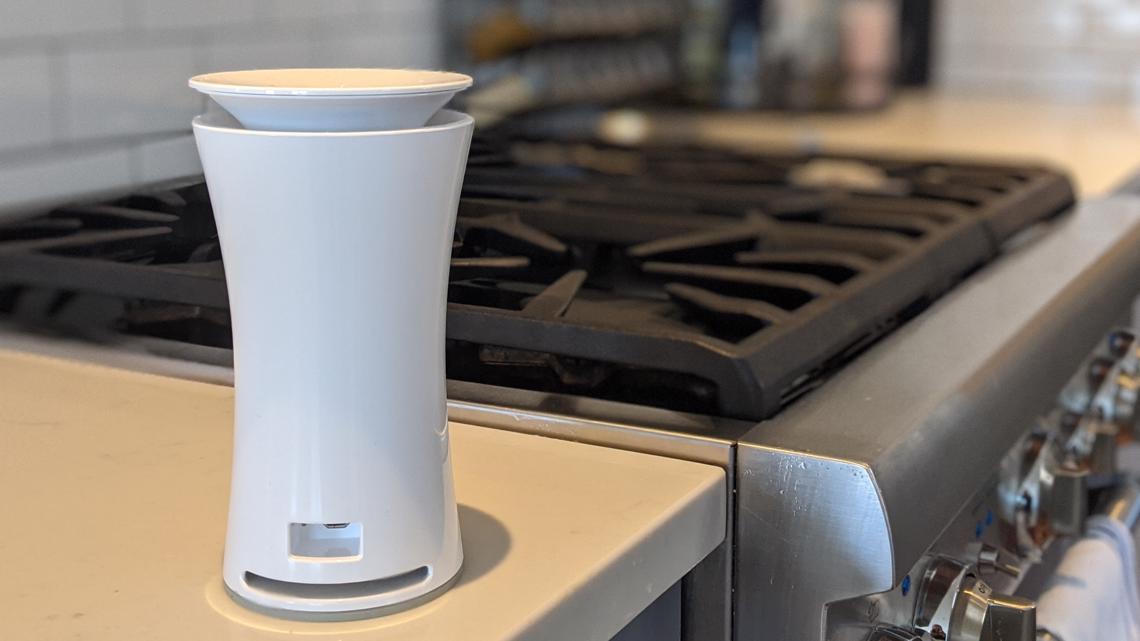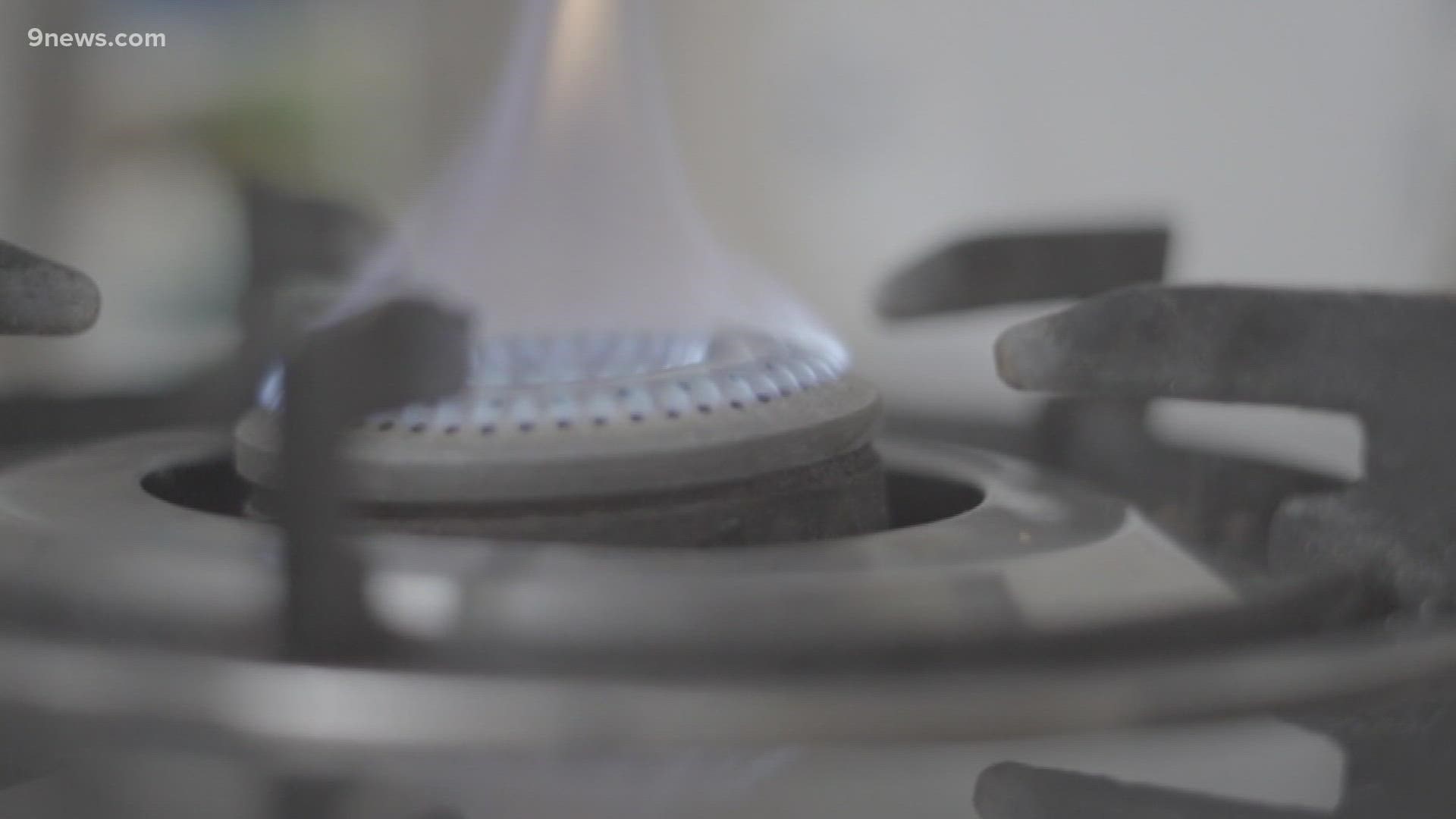BOULDER, Colo. — Cooking with gas may be the preferred method for some people, but scientists say it could increase your family's health risk.
Research shows natural gas stoves and ovens emit harmful chemicals that can pollute the air inside our homes.
Those appliances burn natural gas, which is another name for methane. When methane is burned, it creates byproducts called nitrogen oxides (NOx).
Scientific studies have shown that children who are exposed to gas stove emissions can have as much as a 42% higher chance of developing asthma.
“This research was really scary for my wife and I,” Boulder resident Michael Thomas said.
Thomas is a science writer and founder of Carbon Switch, an energy research company. He said he was well aware of the climate impacts that methane and its burned byproducts can have on the atmosphere, but was skeptical about how much air quality impacts they might have.
"In fact we just bought a new house last year, and we were so excited that our home was going to have a gas stove," Thomas said. "I mean, we thought that was a premium product that we were getting."
So he set up an in-home experiment to see for himself just how much pollution his gas stove was producing. He placed a couple of air quality sensors in the house and watched the numbers spike while he cooked his meals.


He said the nitrogen dioxide went up to 291 parts per billion, which is nearly three times greater than the standard set by the Environmental Protection Agency.
“When I saw that, it was startling,” Thomas said. "Now we had the data right from our kitchen and we really became concerned."
That concern grew even larger when Thomas learned the EPA does not have a standard regulating indoor air pollution. The one-hour EPA standard for nitrogen dioxide of 100 parts per billion (PPB) is only for outdoor pollution.
"It's not comparing apples to apples when you're comparing methane from a stove to methane from a tailpipe, for example," said Dr. Anthony Gerber, a pulmonologist with National Jewish Health. “Even though you say it’s the nitrogen oxide causing the problem, it’s still a different chemical mix.”
Gerber said he acknowledges the research showing higher risk to sensitive groups when exposed to gas stove emissions, but he also said there are many other credible studies that show low risk or inconclusive results.
He does agree that gas stoves create short-term spikes of nitrogen oxides, which always carries some health risk.
“Is that the same risk as breathing in exhaust fumes? Probably not," he said. "So I think we have to be very careful about taking something that’s dangerous in one context and moving it into another context and deciding that it has the same risk.”
For the Thomas family, the evidence is convincing enough, especially now that they have a new set of lungs to look after. Their baby boy Theo was born in 2022.
“When you have a kid, everything sort of changes in your life," Thomas said. "And you start being so cautious of all the risk around you.”


Solutions
"In an ideal world, we wouldn't have gas stoves, but I don't think I would hit the panic button if I had one in my house," Gerber said.
Gerber said the health impacts of gas stove emissions would not compel him to remove a gas stove from his house, but the climate impacts of the methane gas and NOx emissions would be a more compelling argument.
Thomas also believes his gas stove is harming the climate by releasing greenhouse gases into the atmosphere, and would love to eliminate two issues by getting rid of it.
"But that's not an easy or inexpensive undertaking," Thomas said. "We just can't do that right now, but there are other things we can do to keep the family safe."
He said they plan to use HEPA and carbon air filters to clean the air in their house, and make sure there is good ventilation in the kitchen while using their stovetop gas burner.
He also said they will use a portable electric stovetop when possible.
Gerber also made these same suggestions.
SUGGESTED VIDEOS: Latest from 9NEWS

